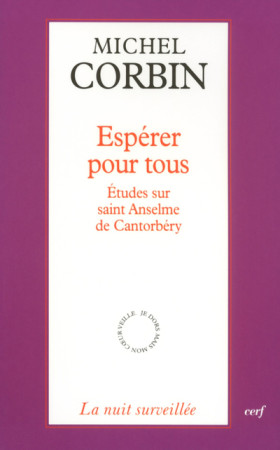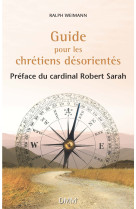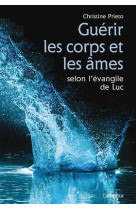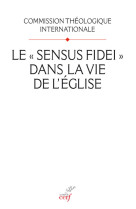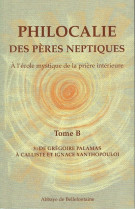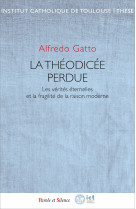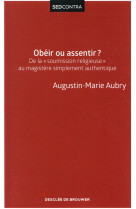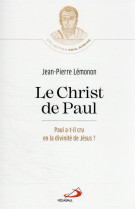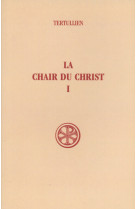ESPERER POUR TOUS
Résumé :
Comme " La Pâque de Dieu " dont il est la suite, ce livre rassemble quatre études sur l'oeuvre et la pensée de saint Anselme (1033-1109), enfant d'Aoste, abbé du Bec, puis archevêque de Cantorbéry. Son argument est le suivant : si nous nous tenons " dans la Vérité " (Jn 8, 44) quand nous nous tournons, avec Jésus, Fils de Dieu et Fils de l'homme, vers Dieu son Père (étude I), si Jésus, par la libre offrande de sa vie, solde la dette de notre création et de notre péché en donnant plus que le Père ne pouvait exiger de nous et de Lui (étude II), si nous ne pouvons Lui rendre son amour qu'en la personne de nos frères, qui sont déjà les membres de son Corps (étude III), il nous est impossible, quand nous prions, de ne pas espérer, pour tous les hommes autant que pour nous-mêmes, le Don immense que Dieu prépare pour ses amis " depuis la fondation du monde " (Mt 25, 34). La théologie d'Anselme a pour lieu natif la prière, et prier n'est rien d'autre que s'en remettre à la bonté de Plus grand, dans l'assurance qu'Il " ne peut se renier " (2 Tm 2, 13). -- Like "La Pâque de Dieu', the author's previous work, this book assembles four studies on the work and the thinking of Saint Anselm (1033-1109), child of Aosta, Abbot of Bec, then Archbishop of Canterbury. His theory was the following: if we abide "in the Truth' (Jn 8, 44) when we turn, with Jesus, Son of God and Son of Man, toward God his Father (study I), if Jesus, by freely offering his life, paid the debt of our creation and our sins by giving more than the Father could demand of us and of Him (study II), if we can only return His love through our brothers, who are already members of his Body (study III), it is impossible for us, when we pray, to abstain from hoping to receive, for all men as much as for ourselves, the immense Gift that God has prepared for his friends "since the beginning of the world' (Mt 25, 34). The theology of Anselm resides in prayer, and to pray is no more or less than to count on the goodness of the Greatest one, in the certitude that He "cannot deny himself' (2 Tim. 2, 13).

